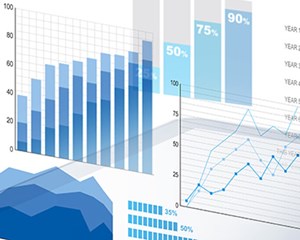Few social findings arising from this kind of data analytics ever end up in the public domain. This means that it does very little to help anchor political narrative in any shared reality. With the authority of statistics waning, and nothing stepping into the public sphere to replace it, people can live in whatever imagined community they feel most aligned to and willing to believe in. Where statistics can be used to correct faulty claims about the economy or society or population, in an age of data analytics there are few mechanisms to prevent people from giving way to their instinctive reactions or emotional prejudices. On the contrary, companies such as Cambridge Analytica treat those feelings as things to be tracked.
由這類(lèi)數(shù)據(jù)分析得出的社會(huì)發(fā)現(xiàn)最后很少能夠進(jìn)入公共領(lǐng)域,這說(shuō)明它對(duì)鞏固共享現(xiàn)實(shí)中的政治敘事的作用少之又少。隨著統(tǒng)計(jì)數(shù)據(jù)的權(quán)威逐漸衰落,沒(méi)有什么東西能夠進(jìn)入公共領(lǐng)域取代它,人們可以生活在任何他們覺(jué)得與自己最一致以及最愿意相信的想象中的社區(qū)。統(tǒng)計(jì)數(shù)據(jù)可以用來(lái)糾正有關(guān)經(jīng)濟(jì)、社會(huì)或人口的錯(cuò)誤說(shuō)法,但在數(shù)據(jù)分析時(shí)代,幾乎沒(méi)有什么機(jī)制可以阻止人們屈服于本能反應(yīng)或情感偏見(jiàn)。相反,劍橋分析公司等公司將這些情緒視為需要追蹤的東西。

But even if there were an Office for Data Analytics, acting on behalf of the public and government as the ONS does, it is not clear that it would offer the kind of neutral perspective that liberals today are struggling to defend. The new apparatus of number-crunching is well suited to detecting trends, sensing the mood and spotting things as they bubble up. It serves campaign managers and marketers very well. It is less well suited to making the kinds of unambiguous, objective, potentially consensus-forming claims about society that statisticians and economists are paid for.
即使有這么一個(gè)數(shù)據(jù)分析辦公室,它能夠像英國(guó)國(guó)家統(tǒng)計(jì)局那樣代表公眾和政府行事,但它是否會(huì)秉持當(dāng)今自由主義者竭力捍衛(wèi)的那種中立觀點(diǎn)尚不可知。這種新的數(shù)字處理設(shè)備非常適合探測(cè)趨勢(shì)、感知情緒以及在事物發(fā)酵時(shí)發(fā)現(xiàn)它們。它能夠很好地服務(wù)于競(jìng)選經(jīng)理和營(yíng)銷(xiāo)人員,但它不太適合對(duì)社會(huì)做出明確、客觀、可能形成共識(shí)的主張,而統(tǒng)計(jì)學(xué)家和經(jīng)濟(jì)學(xué)家是為此付費(fèi)的。
In this new technical and political climate, it will fall to the new digital elite to identify the facts, projections and truth amid the rushing stream of data that results. Whether indicators such as GDP and unemployment continue to carry political clout remains to be seen, but if they don't, it won't necessarily herald the end of experts, less still the end of truth. The question to be taken more seriously, now that numbers are being constantly generated behind our backs and beyond our knowledge, is where the crisis of statistics leaves representative democracy.
在這種新的技術(shù)和新的政治氛圍下,在紛繁復(fù)雜的數(shù)據(jù)流中識(shí)別事實(shí)、預(yù)測(cè)和真相的任務(wù)將落在新的數(shù)字精英們身上。國(guó)內(nèi)生產(chǎn)總值和失業(yè)率等指標(biāo)是否依舊具有政治影響力還有待觀察,但如果沒(méi)有,這未必預(yù)示著專(zhuān)家的末日,更不用說(shuō)真相的末日了。既然數(shù)字不斷在我們背后和我們不了解的情況下產(chǎn)生,我們就應(yīng)該更認(rèn)真地對(duì)待這個(gè)問(wèn)題,這就是統(tǒng)計(jì)危機(jī)留給代議制民主的地方。











